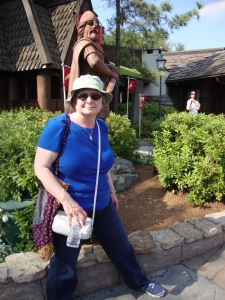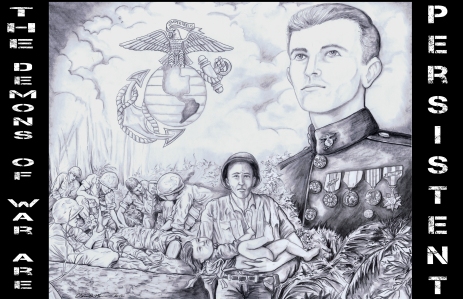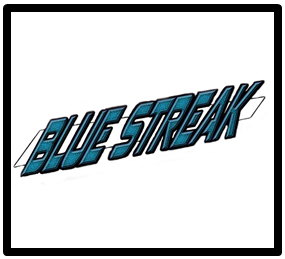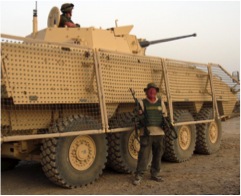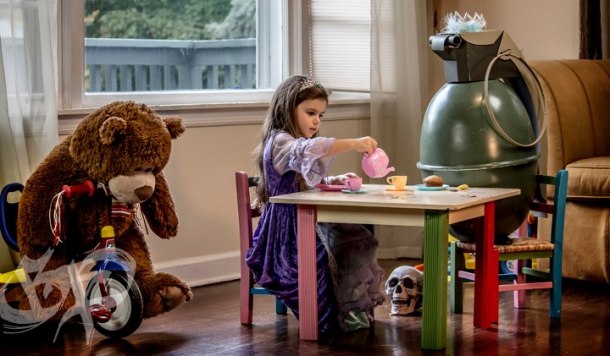Spotlight: Veteran Poet Ryan Koch’s “Poetry Potential”
by Judith McNeely
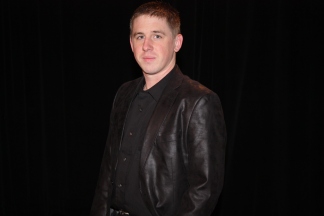
Ryan Koch is one of the promising new poets whose work will soon be featured in Blue Streak: A Journal of Military Poetry. Ryan describes his poem “Showtime” as one that compares his arrival in Afghanistan to the sensations experienced by an actor taking first steps onto the stage on opening night. In a recent interview, I asked Ryan about his journey from war to writing.
Ryan labeled his year-long deployment to Afghanistan’s Kunar Province as “rough.” When I asked him to describe his military background and his deployment with 1st Platoon, B Company, 1/327 Infantry, Ryan’s response resonated with pride in what he and his combat brothers achieved there. As sometimes happens in a deployment, Ryan’s platoon was re-routed and attached to 2/327, making them the “bastard children of 2nd Battalion.” This meant that his platoon was “given the worst of the worst missions.” When he describes the hardships he and his brothers faced in Afghanistan, Ryan does not forget those who were killed and injured there. In the interview, he noted with pride that, “Every mission we were sent on we accomplished, even with overwhelming odds.” Of course, this success also earned them more missions, and, for Ryan, these experiences produced memories of bad times and good times.
But Ryan has—unexpectedly, he says—discovered that writing poetry helps him deal with the “dark place” that was his military experience. He describes himself as having always been a writer, but when he attended the Military Experience and the Arts Symposium in the summer of 2012, he found resources both within himself and in the form of other veterans there. In particular, Ryan credits fellow veterans and MEA contributors James Hackbarth and Bill Howerton with helping him to see his own “poetry potential.”
Not only did Ryan find that he had “poetry potential,” but he also found the healing possibilities that come through writing poetry. Ryan described the impact writing has had on his life, explaining that writing has a power that can lift him out of the dark feelings that followed him home after his year in Afghanistan. Where medication and therapy failed him, Ryan discovered that writing is one of the two forms of therapy which helps. He says that talking with other veterans offers the greatest help, but beyond that “writing is the biggest and best therapy I have.” Ryan also finds writing to be the best means of communicating his inner turmoil with non-veterans.
Finding a veteran community network has been essential to Ryan’s success. He credits MEA with introducing him to a veteran community that has helped him both personally professionally. Through this network, Ryan is able to get feedback and encouragement. This is important to him, Ryan says, because “Veterans know what I’m trying to say and they can help me make my pieces better without losing the theme.”War themes will continue to play an important role in Ryan’s future writing plans. In addition to his poetry, Ryan is working on two larger projects, one of which is a screenplay inspired by his experiences with PTSD. He is currently editing this project and toying with ways to expand it so as to explain the “why” of PTSD. In addition to this screenplay, Ryan is working on a proposal for a program that would collect and share the stories of veterans from World War II, Viet Nam, and Korea. A key component of these stories would involve returning the veteran to the deployment theater as part of a narrative that would tell these veterans’ stories “from enlistment/draft to life after the military.”
When asked what advice he would give to other writers, he recommends writing about the good times and the bad. Ryan said, “Write for you and don’t worry about what others think.” Editing, he says, is another step best saved for later. And he has some specific words for other veterans who want to write, “Keep writing … Write about everything, especially the traumatic memories … Write about the good memories, too. Those are the ones that will keep you going day after day.”
